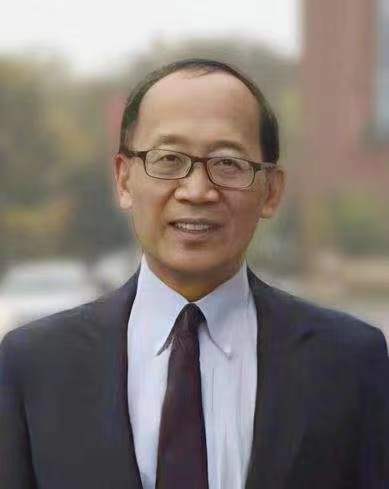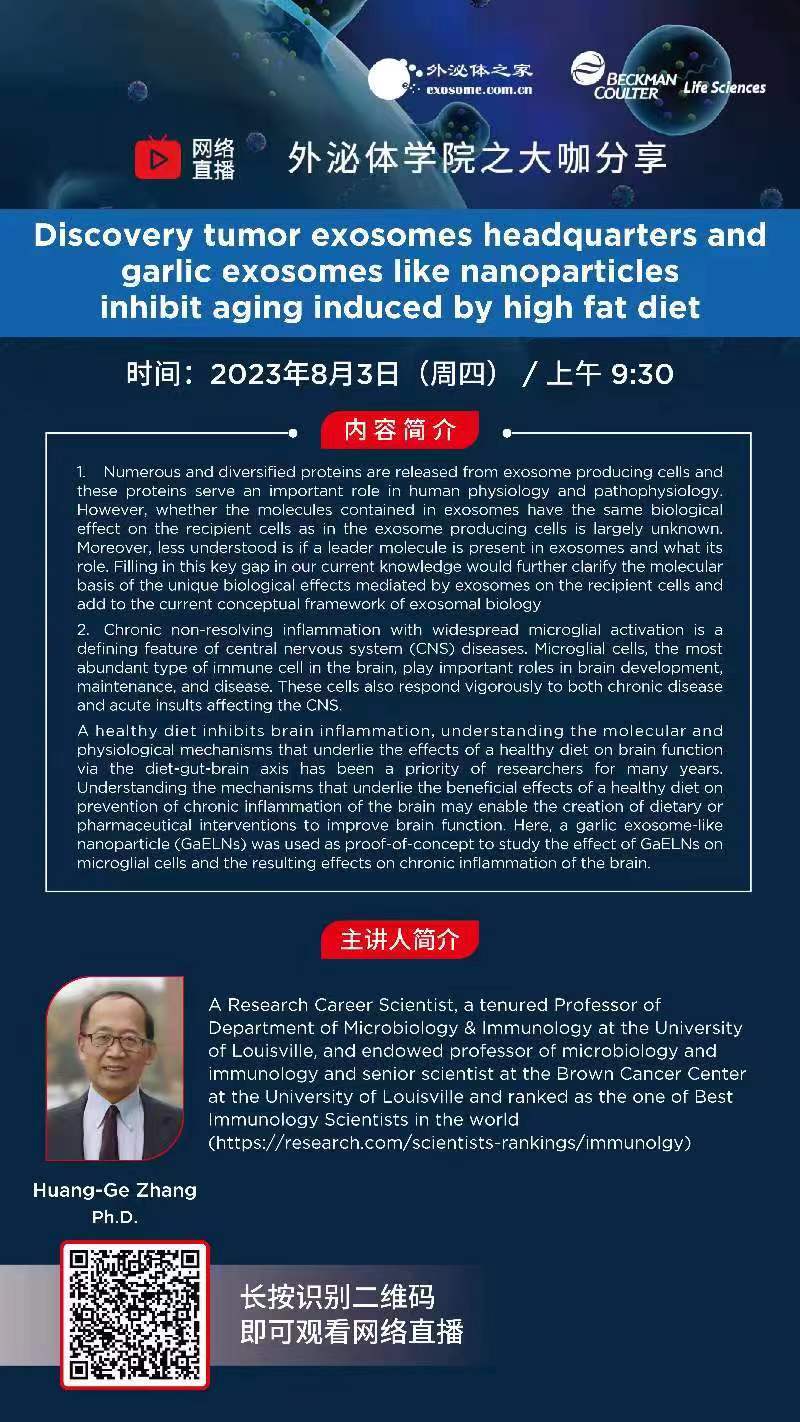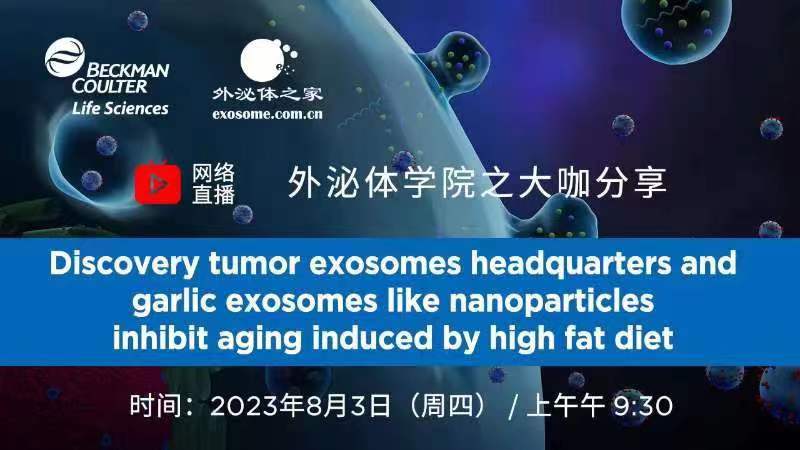Today his talk will cover two areas:
1. Numerous and diversified proteins are releasedfrom exosome producingcells and these proteinsserve an important role in human physiology and pathophysiology. However, whetherthe molecules containedin exosomes have the same biological effect on the recipient cells as in the exosomeproducing cells is largely unknown. Moreover, less understood is if a leader moleculeis present in exosomes and what its role. Filling in this key gap in our current knowledge would further clarify the molecular basis of the unique biological effects mediated by exosomes on the recipient cells and add to the current conceptual framework of exosomal biology
2. Chronic non-resolving inflammation with widespread microglial activation is a defining feature of central nervous system (CNS) diseases. Microglial cells, the most abundant type of immune cell in the brain, play important roles in brain development, maintenance, and disease. These cells also respond vigorously to both chronic disease and acute insults affecting the CNS.
A healthy diet inhibits brain inflammation, understanding the molecular and physiological mechanisms that underlie the effects of a healthy diet on brain function via the diet-gut-brain axis has been a priority of researchers for many years. Understanding the mechanisms that underlie the beneficial effects of a healthy diet on prevention of chronic inflammation of the brain may enable the creation of dietary or pharmaceutical interventions to improve brain function. Here, a garlic exosome-like nanoparticle (GaELNs) was used as proof-of-concept to studythe effect of GaELNs on microglial cells and the resulting effects on chronic inflammation of the brain.

Huang-Ge Zhang, Ph.D., A Research Career Scientist, a tenured Professor of Department of Microbiology & Immunology at the University of Louisville, and endowed professor of microbiology and immunology and senior scientist at the Brown Cancer Center at the University of Louisville and ranked as the one of Best Immunology Scientists in the world (https://research.com/scientists-rankings/immunolgy)
He publishedthe first exosomesbook as Editor-in-Chief, entitled “Emerging Conceptsof Tumor Exosome-Mediated Cell-Cell Communication”, Springer Science, 2013.

既往直播回顾:
外泌体学院之大咖分享第一期
【免费报名】外泌体学院之大咖分享第二期——外泌体的药物递送
【免费报名】外泌体学院之大咖分享第三期——外泌体功能化与疾病诊治
【免费报名】外泌体学院之大咖分享第四期
【直播邀请】外泌体学院之大咖分享第五期
【免费报名】外泌体学院之大咖分享第六期——外泌体分析的高通量、自动化和临床应用
【免费报名】外泌体学院之大咖分享第七期——用外泌体投递CRISPR/Cas9核酸蛋白进行基因编辑
【免费报名】外泌体学院之大咖分享第八期——细胞外囊泡逆转衰老等功能及其关键内容物成分和机制挖掘
【免费报名】外泌体学院之大咖分享第九期——可食用植物外泌体样纳米颗粒(ELNs)用于疾病治疗
【免费报名】外泌体学院之大咖分享第十四期——外泌体在免疫抑制和肿瘤侵袭中的作用
【免费报名】外泌体学院之大咖分享第十五期——外泌体在免疫抑制和肿瘤侵袭中的作用
【免费报名】外泌体学院之大咖分享第十六期——利用外泌体递送CRISPR-Cas9核糖核蛋白复合物用于肝靶向治疗性基因编辑





